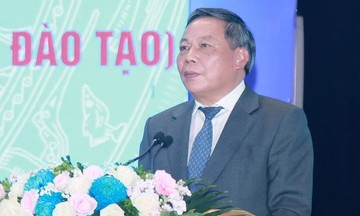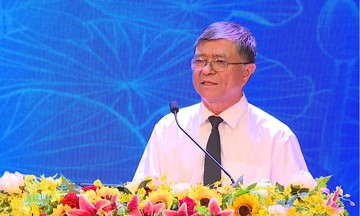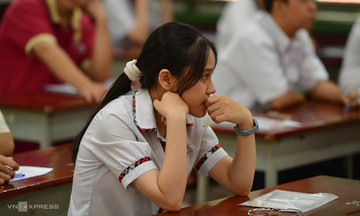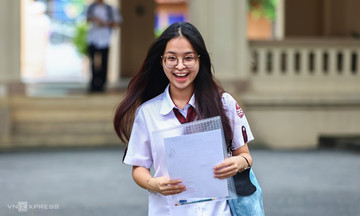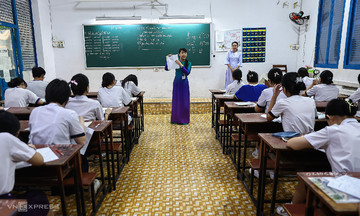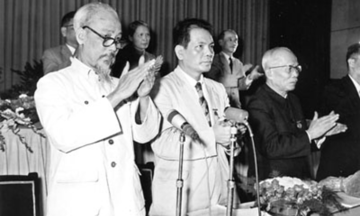Li’s decision comes as many American universities face research funding cuts. His return is the latest in a decades-long trend of Chinese scientists returning to their homeland, drawn by growing research opportunities and career advancement, according to the South China Morning Post (SCMP).
Professor Li expressed his desire to contribute to China's scientific development and inspire younger generations to pursue research. "For me, mathematics is not just about numbers, but a journey to explore the intricate structures of the world around us," he said.
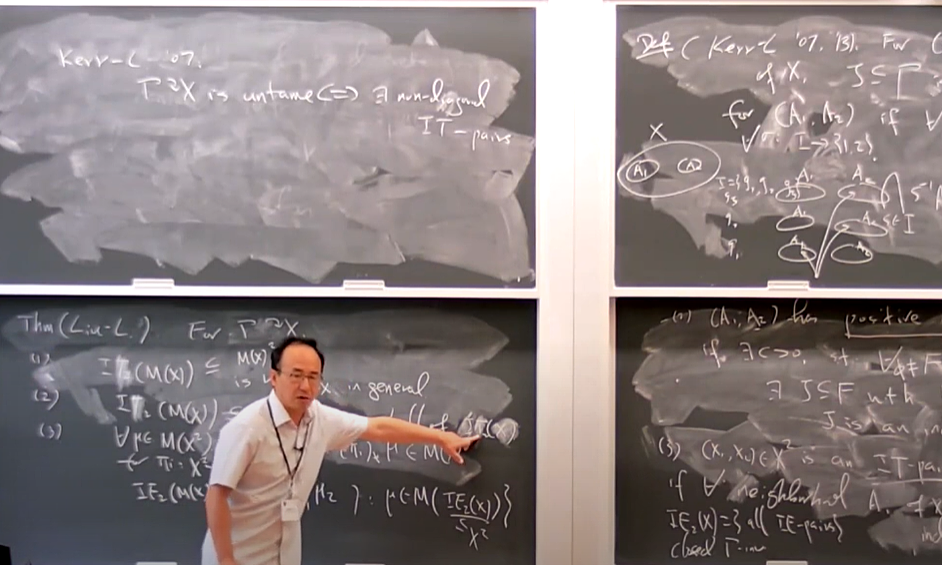 |
Li Hanfeng during a lecture, posted on the Fields Institute's YouTube channel. Screenshot. |
Li Hanfeng graduated with a bachelor's degree in mathematics from Peking University in 1997. He earned his doctorate from the University of California, Berkeley, in 2002, and completed postdoctoral research at the University of Toronto. He then taught at the University at Buffalo, part of the State University of New York (SUNY) system.
According to the University at Buffalo website, Li's research focuses on noncommutative geometry (the study of spaces where the order of operations is significant) and dynamical systems (mathematical models describing how a state or position changes over time), with an emphasis on the relationship between operator algebras and complex dynamical systems.
He is particularly renowned for his work on sofic entropy, an advanced mathematical concept used to measure the complexity and uncertainty in dynamical mathematical systems.
From 2005 to 2019, Li Hanfeng published 10 research papers in four leading mathematics journals: Annals of Mathematics, Inventiones Mathematicae, Journal of the American Mathematical Society, and Acta Mathematica. These journals publish only about 100 articles annually, and being published in all four is a rare achievement.
In 2021, he was honored by the American Mathematical Society (AMS) for his contributions to algebraic dynamics and operator algebras. Last year, he was one of three recipients of the University at Buffalo’s Exceptional Scholar Award for outstanding academic contributions.
Li is not the first prominent mathematician of Chinese descent to return to China. Others include Sun Song from the University of California, Berkeley; Ruan Yongbin from the University of Michigan; and number theorist Liu Yifei from Harvard University, who now works at Zhejiang University. Shing-Tung Yau, a mathematics professor at Harvard and the first Chinese recipient of the Fields Medal, teaches at Tsinghua University. Wang Xujia, an Australian mathematician known for his work on differential equations, returned to his hometown of Hangzhou to work at Westlake University.
A study in the Proceedings of the National Academy of Sciences, analyzing data from 200 million scientists across 25,000 institutions between 2010 and 2021, found that nearly 20,000 scientists of Chinese origin left the US.
This exodus has partly contributed to China leading the world in international publications in 57 out of 64 technology fields, based on citation counts from 2019 to 2023, according to the Australian Strategic Policy Institute (ASPI).
Huyen Trang (Compiled)



